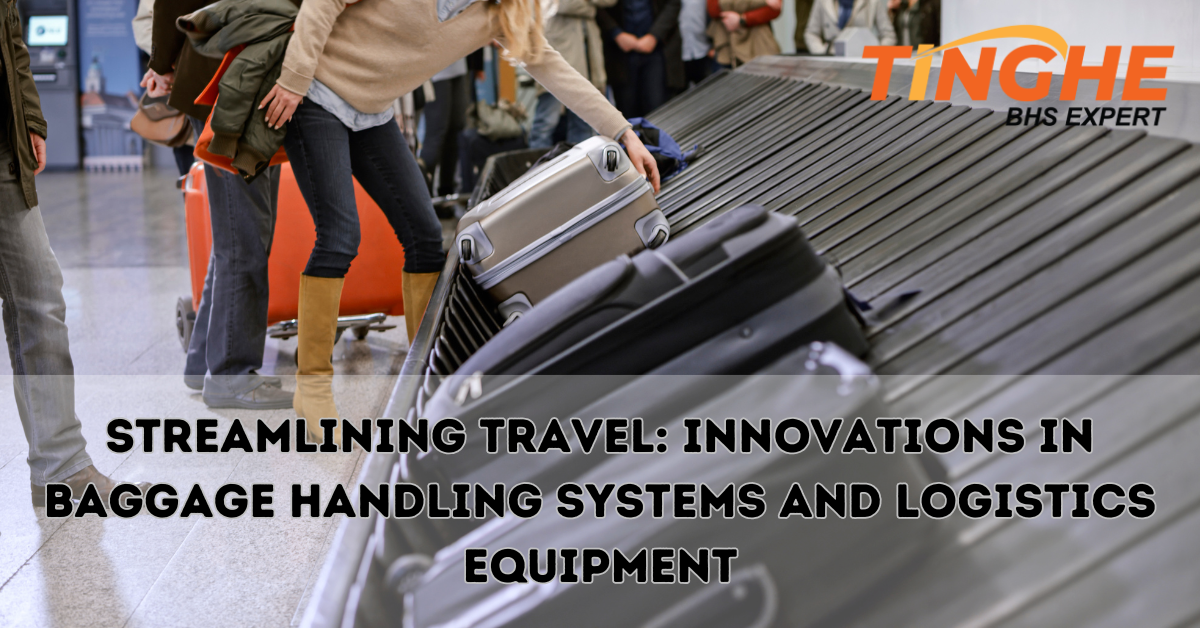
Baggage handling is complex and sometimes experiences severe delays. Many passengers suffer because of that, which could be anything. Imagine if there was technology that could eliminate all these hectic delays and errors to ease the boarding and clearance process; how great would it be? There are some chances in the form of innovations about entering the airport management systems. They will integrate and automate many operations to reduce errors, delays, and bad customer experience.
Blockchain technology is already entering the world with a safer and more secure structure. When it enters the airport baggage handling system, things will become even safer. Blockchain has not been accepted by any proper organization yet, but it might open gates of opportunity. In terms of the baggage handling system, the data will remain protected from any breach. Moreover, the decentralized structure will protect all customers' sensitive data.
For instance, passengers will receive better responses if the baggage carousel system is connected to it. There will be no delays or confusion. The most significant advantage will be in terms of safety from hacking attempts. Decentralized data processing will prevent everyone from making such attempts.
A few airports might have hardly introduced robotics to their baggage handling system. Even if anyone is about to connect robots to their baggage sorting system, it will boost efficiency. Moreover, the cost of baggage sorting will drop. Since robots will replace manual laborers, the overall cost of operations will be affected. Furthermore, the efficiency level of the sorting process will rise at a very high rate.
There will be no delays or major errors. Robotic systems will offer better accuracy than traditional machines. Sorting machines of previous generations can’t match the level of newer ones. The latest ones, with more robotic assistance and AI technology, will surely be more sophisticated and advanced.
Likewise, the loading and unloading operations are partially manual and automatic. Passengers face delays because human force is not available. Moreover, improper training of loading staff can cause damage. However, robots might outperform humans in the upcoming years. They have the potential to lift heavy luggage easily. Moreover, the luggage placement procedure will be better than manual operations.
The weight of the luggage will not make any major difference in airport operations. Replacing traditional machines with high-tech robotic systems will improve the efficiency of loading and unloading activities. In addition, those robotic operations will impact luggage safety. That is an area that requires the maximum attention.
Since mobile applications and IoTs are already taking over the world, we can’t ignore them. Aligning baggage handling systems at airports with these technologies will be a game changer. Since mobile applications are smart enough to recognize various objects, from faces to codes, they can do better in the luggage scanning process. Passengers who want to save time in locating their luggage will get assistance from mobile applications. They can track and recognize their baggage at the baggage claiming area much faster.
The luggage identification process will also save passengers time from hectic steps. They just need to scan luggage that seems similar to their luggage. If the application recognizes it, there will be no more confusion with people with similar baggage. Again, it is not ready yet, and the features are yet to come. It is a part of innovation that can take place in the future to simplify operations.
RFID tags are another technology that is not very new but could change the game. Airports with this technology can make the identification process faster. This technology is common in retail stores, which shows all the details of a product fed in a code. Likewise, all the details of luggage can be fed in an RFID tag to attach it to the luggage. It will allow the authorities to double-check the details of what’s inside the luggage.
It will also allow fast-tracking of luggage throughout the clearance process. Airports must use different methods, which RFID tags can replace to give better and faster results.
Artificial intelligence is already taking over the entire world and replacing previous methods of performing tasks. Just imagine if this technology is streamlined with an airport baggage handling system; things will become really smart. Airport management can handle many complex and simple tasks with AI technology. That will simplify and deal with the challenges more efficiently than current machines.
For instance, if AI technology is connected to conveyor systems, they will detect and sort much better without human assistance. They just need codes that will allow them to identify luggage without human interference. This will reduce the cost of operations and also the speed. Thus, the delays will be addressed in a better and more advanced way. Flight operations will directly benefit from these innovative methods.
Some self-service desks exist at advanced airports, and adding AI technology will speed them up further. It will not only reduce the load on the airport clearance staff but also increase passenger satisfaction. Artificial intelligence will also unlock features that will further allow passengers to make things easier for them. It will also show real-time data processing by collecting user data for future assistance. It will benefit frequent flyers who face the same complex method repeatedly.
A state-of-the-art system will connect all the participants for real-time data processing. It concerns passengers, airport management, ticketing companies, and even cab services. AI technology might integrate many operations to speed up boarding and other processes.
Streaming travel innovation in baggage handling systems is not easy to adapt, but it is possible. Not today, perhaps, but surely tomorrow, it will become a reality. In the future, there could be more services and applications that can assist traditional machines like conveyor systems, baggage scanners, loaders, and the rest. The entire logistics operations are integrated into it for the highest user experience in the nearest years.
Streamlining Travel: Innovations in Baggage Handling Systems and Logistics Equipment Ba
READ FULL